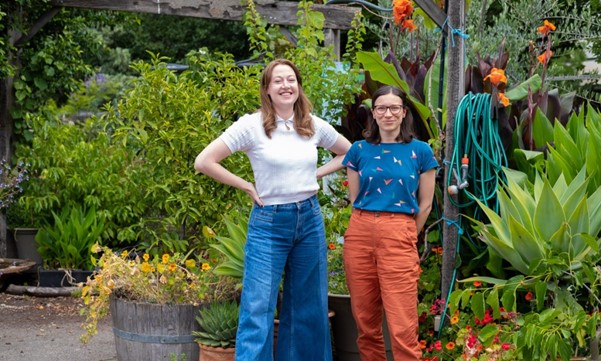
Three South Australian theatre companies speak about the artistic responsibility to engage with the climate crisis, and the likelihood theatre alone can save the world.
In 1968, the celebrated British director Peter Brook wrote that repressive regimes still fear the theatre because it can spark a “dangerous electricity – even if we see this happen all too seldom”.
Half a century on, cinema and television now reign supreme in our cultural landscape, and the internet has long since siloed us into social echo-chambers. Brook’s proviso that the revolutionary power of theatre is seldom seen feels more apt now.
And yet, when Australian playwright David Finnigan first developed his Griffin Award-winning play Kill Climate Deniers in 2014, the work attracted the performative outrage of News Corp’s chief moral-panic peddler, Andrew Bolt.
The ensuing and largely confected controversy scuppered the production before it saw the light of day. Rather than let his satire die, Finnigan redeveloped Kill Climate Deniers to include both a version of Bolt and the playwright himself, as well as the surrounding criticism. In 2018, the play was staged by Griffin Theatre Company, and this year SA’s Kinetik Collective brought the show to South Australian audiences.
Finnigan’s play might not have ultimately turned deniers into believers (nor, it should be said, did it kill any of them), but it certainly ruffled feathers. In the context of global inertia in addressing our rapidly accelerating climate crisis, the experience might actually be a sign of hope, a sign that art – and in this case theatre – still has cultural currency.
But when increasingly apocalyptic climate reports can’t push policy with the requisite urgency, can theatre save us from a climate catastrophe? Can it create that “dangerous electricity” that activates audiences and scares governments into action? And even if it can, should it have to?
Mitchell Butel, artistic director of State Theatre Company South Australia, thinks it’s unfair to expect theatre to fix our problems.
“It is a place for social discourse,” he says, “but I think theatre gets burdened with having to do everything.”
Still, he believes that telling stories about the climate crisis remains crucial.
“I do think that theatre… can change minds in a way that politics can’t,” Mitchell says. “You have to program very broadly, obviously. But for me – and I said this when [Finegan Kruckemeyer’s] Hibernation came out – if a theatre company isn’t dealing with [climate change] on some level when it’s one of the biggest issues in the world at the moment, there’s a problem,” he says.
Stephanie Daughtry and Hannah Rohrlach, who together make up experimental performance theatre outfit Post Dining, see the performing arts as having a “very powerful part to play in addressing the climate crisis”.
Their latest show, Eating Tomorrow, questions what our future will look, feel, and taste like. Inspired by research done by the Australian Academy of Science and imbued with “First Nations perspectives on sustainable food practices”, Eating Tomorrow is an immersive, multi-sensory theatre performance that bridges the gap between the climate crisis and people by putting audiences directly into the show.
“Part of the mission of Eating Tomorrow is to empower audiences by emotionally connecting them with the environment in an accessible and personal way,” say Stephanie and Hannah. “The creative arts are a key tool for engaging conversations in meaningful ways, spreading awareness, and even coming up with creative solutions.”
Putting stories on stage doesn’t just help create an emotional connection. It can also give audiences a framework to understand complex issues like climate catastrophe, a way to act out the emotional, intellectual, and physical concerns, as well as the ramifications of inaction.
Films like Steven Soderbergh’s Contagion, Mitchell says, help people think about disease and infection – useful in what some epidemiologists are calling our Pandemicene. Stories about the climate crisis can do the same. They can prepare people by giving them a language of experience and, depending on the story, a way to feel hope.
How you create that hope seems key. Caitlin Ellen Moore, founder and ‘Head Storyteller’ at Wickedly Good Productions, thinks it’s about “not inflating” the anxiety we already feel about the climate crisis. The stories Caitlin helps tell tend to reflect the way we exist in the everyday, where “you’re having a conversation with someone and you realise that the world is dying, but you keep living,” Caitlin says.
In Caitlin’s approach, a show can be about a four-year-old’s birthday party, as in the award-winning You’re All Invited to my Son Samuel’s Fourth Birthday Party, or it can be a choose-your-own-adventure about a night out, someone’s dating life, and bees (the chief concerns of Caitlin’s next project, Bumbling, alongside Isobel Marmion and Kidaan Zelleke), and still be about the climate crisis. For Caitlin, it’s about creating shows where you don’t have to necessarily “talk about the planet dying, but let’s talk about the show which the planet is dying in,” they say.
While Mitchell sees merit in the sort of agitprop shows that “actually encourage activism at the end”, entertaining the audience, he says, is the theatre’s first aim.
Entertainment can sometimes be a dirty word in serious circles, but Mitchell sees that the term encompasses “provoking a response that makes people sit up”.
“That’s entertainment to me,” Mitchell says. “I think it’s imperative that you entertain at the same time as [putting these] Trojan horse messages into the work about social change.”
There’s always the danger of a work losing its edge when it shrouds its messaging or avoids unsettling its audience. Neat endings and catharsis can act as a release valve, rather than a call to action. But equally, polemics can switch audiences off – especially if the provoked emotion is powerlessness. Where to sit on that spectrum has no easy answer.
“Conversations around climate change often feel disempowering, leaving people with a genuine anxiety for the future,” Stephanie and Hannah say. “We see the value of artistic practises in illuminating a more hopeful perspective and path towards more positive futures.”
But if hope really is the key to creating change, then it’s not enough to just put on a performance. Given the emotional load many audiences are already bearing, they can’t be blamed for simply getting on with their lives once they emerge from the theatre. There needs to be a connective bridge, something that takes the ideas of the storyworld and turns them into demonstrable action.
Caitlin sees this almost like a customer journey – not just thinking about what it means when audiences buy a ticket but what it means when they’ve left the show.
“How do we make sure that the impact of what they’ve seen actually continues on?” they say. “It needs to happen in the arts, [going] back to the sciences and activists and [asking], ‘What is the other group to loop in who can continue that journey?’ It’s just putting in that extra work and extra effort and looking at post-production and how to continue that [on the other] side of having people in a room.”
For Caitlin, this might be partnering up with Australian Youth Climate Coalition or Seed Indigenous Youth Climate Network.
“Whatever your work [focusses on], there’s probably someone out there who’s doing something in the real world,’ they say.
Post Dining’s work outside the performance space encompasses online resources for teachers and workshops in schools that “open up a broader conversation around the themes addressed in our show,” Stephanie and Hannah say, as well as providing practical ways for people to discuss and think about how the climate crisis will affect our future food systems.
For State Theatre’s part, it’s their long running Tangent talks, often featuring a raft of activists, scientists, and artists, that help expand the discussion of a show’s themes and create a conversation between the imagined spaces of the play and the real world. “You’re trying to activate conversations around the work. It seems important,” Mitchell says.
While these ancillary activities create an extra burden for artists and organisations, they also support theatre’s value as a gathering place, and at this point, any opportunity for solidarity and cross-pollination seems vital in a social environment where we are increasingly atomised. The extra effort won’t always be rewarded, but it remains an important part of the process.
The truth is theatre can’t save us from catastrophe. There is no single panacea to our predicament. Even if theatre can still create the dangerous electricity that Brook once described, it will take the collective will of millions of people to bring us back from the brink. Besides, for all of the heavy lifting expected of theatre, fossil fuel companies continue to obfuscate and delay while profiting from the planet’s destruction.
Back in 2020, Finnigan, who’d spent years attempting to use theatre as a tool to raise awareness on climate change with little real success, wrote that, ultimately, the role of art in addressing the climate crisis was to “gather us together and let us know that we’re not alone”.
And maybe he’s right. Hope comes in knowing there are others out there with you, that you’re not alone in the face of catastrophe.
Theatre is the thing that brings us together in the same space, gives us a shared language, a way to collectively imagine what’s next. It won’t necessarily be what saves us, but it might just help.
Words: Piri Eddy
Image: Stephanie Daughtry and Hannah Rohrlach, Johnny von Einem


